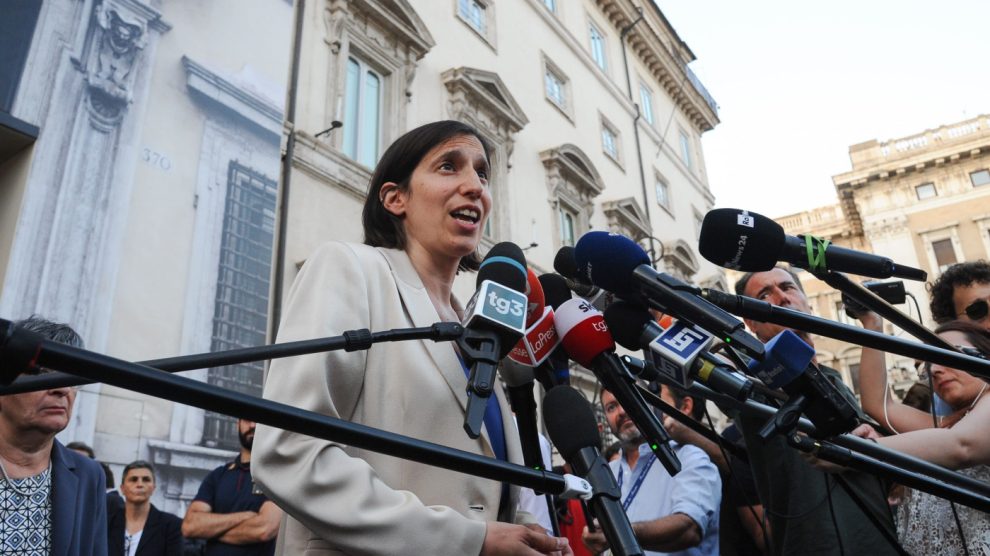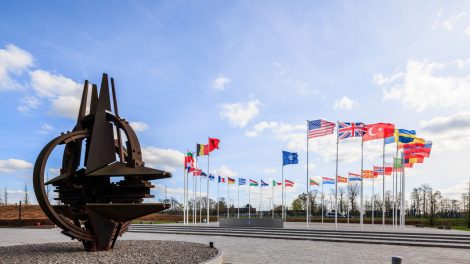Elly Schlein calls to postpone NATO spending target. Over the weekend, the leader of the Democratic Party (PD, Italy’s main opposition force) told reporters that she agreed with German Chancellor Olaf Scholz’s recent decision to walk back on Berlin’s promise to meet NATO-wide defence spending targets.
- In doing so, she broke with her party’s commitment to the goal, approved in March 2022 by the Italian Parliament, to gradually increase defence spending every year so as to reach 2% of GDP by 2028.
- Though acknowledging that the path to reaching that goal will be arduous, the current government stands by maintaining Rome’s commitment to NATO allies. The upcoming budget law is expected to earmark a sum equivalent to 1.43% of Italy’s GDP for the year 2024.
Is she looking at the (five) stars? Ms Schlein’s U-turn drew criticism from both within and outside her party, with onlookers interpreting it as a sign that Ms Schlein is ferrying the PD towards the Five Star Movement (M5S) – whose members strongly oppose military spending (despite having voted for it during their time in government) and even arming Ukraine. This would substantiate a trend that emerged in early summer, with PD members splitting and asserting their line of support to Ukraine despite a degree of ambiguity on behalf of their leader.
- The PD’s more centrist flank, headed by former Defence Minister Lorenzo Guerini, stated in an official communiqué that there would be “no line change” and that the 2028 target would remain, stressing the importance of “continu[ing] with the gradual annual increase” of defence spending.
- The 2% goal “is a formal international commitment by Italy. A major party does not announce that it would rather postpone it than keep its word,” said former PD senator and leading party member Luigi Zanda in an interview with Repubblica.
Damage control. Later, Ms Schlein herself attempted to reassure onlookers by reiterating that the PD “stands strongly with the Ukrainian people who have suffered Russian aggression” and that “there can be no equidistance on this.” The party, she continued, will continue to fully support any necessary [form] for the self-defence of the Ukrainian people against Russian aggression. At the same time, we want to see a stronger diplomatic and political role for Europe to end this conflict with a just peace for the Ukrainian people.”
- On Monday, PD MP Marco Furfaro (a close ally to Ms Schlein) sought to differentiate the issues supporting Ukraine and increasing military spending in an interview with Repubblica. He also raised the prospect of bolstering the European Union’s common defence project and addressing the duplication of efforts to rationalise expenditures, offering this line as the backdrop to Ms Schlein’s reasoning.
But still, they talk. Regardless, it’s hard to ignore that Ms Schlein – who has been leading the PD since February 2023 – is positioning herself more to the left of her predecessors and closing the gap with the anti-establishment, populist and NATO-sceptic M5S. That became clear when she criticised the use of EU funds to replenish the Ukraine-depleted ammunition stocks (which, incidentally, was also an important step towards common EU defence).
- Her alignment with the M5S on watering down the military expenditure goals also testifies to this tendency, as well as her reference to stepping up EU diplomacy in the context of the Ukraine crisis (a flagship M5S talking point) and other moves – including her picking the only PD MP who voted against arming Ukraine as deputy president of the party’s Parliament group.
The bottom line. It might well be that Ms Schlein’s repositioning could be dictated by electoral needs, such as building an alliance with the 5SM – especially as the left is performing poorly in local elections. Also, some leftwing PD members are ideologically adjacent to the 5SM on matters like the Ukraine and weapons. The same might be true for PD voters, and the party leader might be trying to appeal to them and avoid being outflanked on the left by the M5S.
- However, Ms Schlein’s actions are angering centrist PD members, who do not intend to water down the party’s support of Ukraine and the push towards a shared and bolstered form of European defence.
- As noted by Lia Quartapelle, an influential PD MP formerly responsible for foreign affairs, the leader’s ambiguity “would mean breaking the PD’s unity.”
- By moving the party left, Ms Schlein might also dilute its partial hold over the centre – giving way to other political forces to her immediate right ahead of the 2024 European elections.





